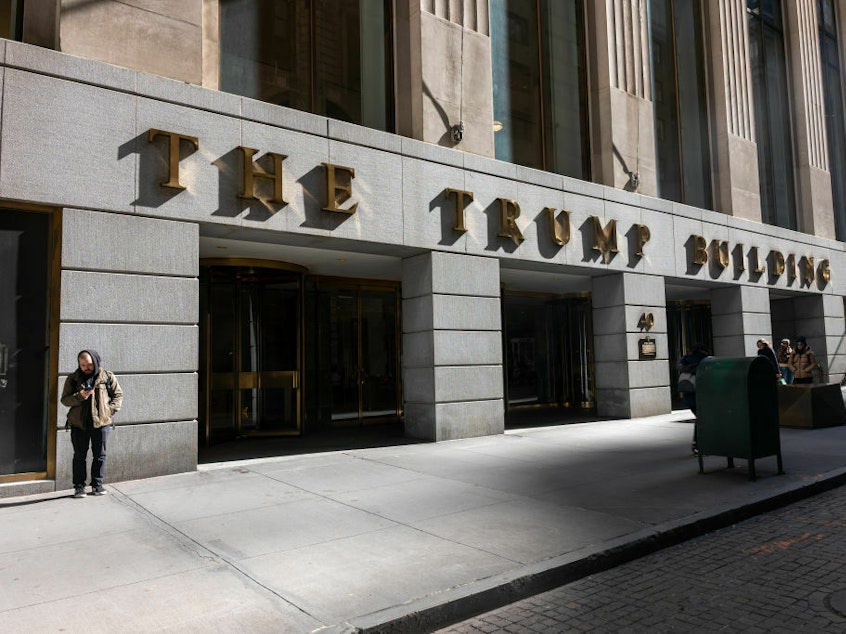Here's what happens if Trump can't pay his $454 million bond

Former President Donald Trump needs to arrange a $454 million bond to comply with a New York Court ruling in less than a week, but the presumptive Republican nominee says he can't find a company to put up the bond.
Trump's lawyers are asking an appeals court to stay the judgment, but the clock is ticking.
How did Trump come to owe the state of New York some $454 million?
This is the ruling that Judge Arthur Engoron issued last month, after finding that Donald, Eric, and Donald Trump Jr. along with Trump Organization employees, engaged in a decade-long conspiracy to lie about the value of their assets.
In New York, if you make money by persistently committing fraud, you owe the ill-gotten portion back to the state. In this case, Judge Engoron determined that Donald Trump made over $350 million more than he should have if he'd been honest and when you add in interest, you get to $454 million.
Sponsored
Why does Trump have to come up with the money now?
Trump doesn't have to actually pay that money now, but he has to get a company to make a guarantee to the court that they will pay the money if he loses his appeal. That's the bond part.
But to get a bond, you have to put up assets, and in a court filing Monday Trump lawyers said they'd approached 30 companies but that getting a bond was a quote "practical impossibility," because they'd need a billion dollars in cash, which they don't have.
They submitted an affidavit from an insurance executive who had testified at trial, and who the trial judge had already discredited.
Trump says he's a billionaire. Why can't he just come up with the money himself?
Sponsored
Trump said during a deposition for this case, taken about a year ago, that he had plenty of cash. He said, "I believe we have substantially in excess of $400 million in cash." And, he added, it's "going up very substantially every month."
News organizations have estimated that Trump actually has about $300 million in liquid assets --- but he already had to set aside $100 million or so to put up a bond to pay the verdict in the E. Jean Carroll civil case. The rest of his money is largely tied up in buildings and golf courses, and while he could sell a property, that doesn't happen right away. Trump said Tuesday that would be a "fire sale," though he said many times during the trial he could always find a buyer to pay top dollar.
The deadline is Monday. What does Trump do if the appeals court doesn't rule his way?
He can appeal to New York's highest court, and ask that court to stay the judgment. If they don't, he can ask a benefactor or he could try and stall some more until he comes into money from the upcoming sale of his social media company, or he could — though it has many disadvantages — declare bankruptcy.
But the New York Attorney General Letitia James has been clear: if Trump doesn't pay, she will move to seize his assets.
Sponsored
"If he does not have funds to pay off the judgment, then we will seek judgment enforcement mechanisms in court," she said. "And we will ask the judge to seize his assets."
Trump's noncash assets run to $3 billion, Forbes estimates, so there's plenty of value there. The law limits the AG to seizing properties that were a part of the case, but there's about two dozen of those, everything from the Doral Golf Club to 40 Wall Street to Trump Tower. She's not limited to New York properties, though there are extra steps if she chooses to go out of state.
She could, in theory, send a sheriff or a marshal to enforce the judgment, and that brings on another legal process with many more opportunities for delay. [Copyright 2024 NPR]



